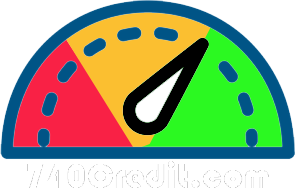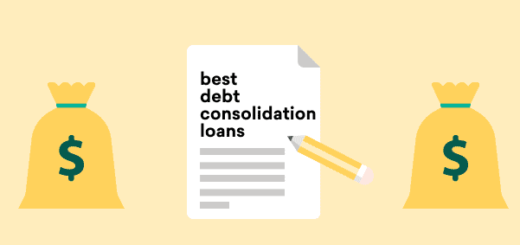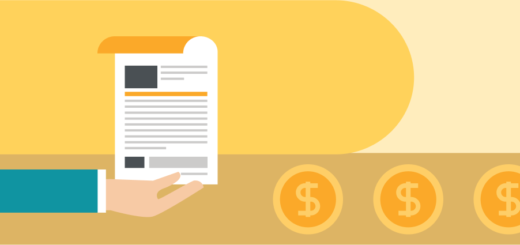What to Do if Your Personal Loan Application Is Denied
Our goal is to give you the tools and confidence you need to improve your finances. Although we receive compensation from our partner lenders, whom we will always identify, all opinions are our own. Credible Operations, Inc. NMLS # 1681276, is referred to here as “Credible.”
So, a lender stamped your loan application “denied.” When it happened, you were likely left discouraged and wondering why.
It’s important to understand that your loan application could be denied for several reasons. Federal law requires lenders to specify within 60 days the exact reason why they rejected your application. Knowing why a lender rejected your application could help you work to improve your odds of approval in the future.
Here’s what to know about common reasons why lenders deny loan applications, and how to improve your chances of getting a loan going forward:
Common reasons why your loan was denied
Two main factors generally cause lenders to deny an application — credit score and income.
Credit score
If a lender sees too many red flags when it reviews your credit history, it might consider you too risky as a borrower. These credit score factors can negatively affect your credit:
- Bankruptcy — A bankruptcy within the last 10 years can have a negative impact on your credit score. Depending on the type of bankruptcy you filed, it can stay on your credit reports for up to 10 years. During that time, it may be very difficult to qualify for any kind of new financing, including a loan.
- Foreclosure — A foreclosure can also be concerning for lenders when you’re trying to qualify for a loan. A foreclosure indicates to lenders that you’ve had trouble managing a loan in the past — and could make them wary to lend to you again.
- Open collection accounts — If you have an open collection account, this means it’s been sent to a collections agency but remains unpaid. This can hurt your credit score until you pay the debt in full, and having open collection accounts can also hurt your chances of getting a loan.
- Late payments — Late payments affect your credit because your payment history carries a lot of weight (35%) in determining your credit score. Qualifying for a loan is much more challenging with a history of late payments.
- High credit card balances — Your credit utilization ratio, or how much debt you have compared to your available credit, plays a big part in determining your eligibility for a loan. High credit card balances could mean you have trouble paying down your current debt — and might have trouble paying off new debt.
- Too many recent credit inquiries — Each time you apply for credit, the lender will likely do a hard credit pull, which can cause a temporary dip in your credit score. Too many recent inquiries in a short period of time could signal to lenders that you’re planning to take on new debt or are experiencing cash flow problems. This could make lenders think you’re at greater risk for non-payment of your loan.
- Short credit history — A long and positive credit history shows lenders that you repay your loans on time. A brief credit history, or no credit history, doesn’t give lenders enough information to determine whether or not you’re likely to repay your loan. This can affect your eligibility to qualify for a loan.
If you’re not sure where your credit stands, you can request a free copy of your credit report from the three main credit bureaus — Equifax, Experian, and TransUnion — from AnnualCreditReport.com.
Income
If you were denied a loan based on your income, it’s likely due to your debt-to-income ratio being too high.
Your DTI ratio is all your monthly bill payments divided by your gross monthly income. Although this isn’t necessarily your fault, as amounts owed can increase faster with inflation than wages, lenders still use your DTI to determine your ability to repay what you plan to borrow.
- Mortgage: $1,500
- Car loan: $400
- Student loans: $300
- Credit cards: $250
Your total monthly debts equal $2,450, giving you a DTI of 70%.
Most lenders prefer a DTI ratio no greater than 36% when qualifying for a loan. You can lower your DTI by focusing on paying down some of your debts, reviewing your spending to see where you can cut expenses, and not taking on any additional debt payments.
Keep reading: What Is Your Debt-to-Income Ratio? How to Calculate DTI
Other reasons your loan application may have been denied
Besides your credit and income, several other factors may cause a lender to reject your loan application, including:
- Employment history — Lenders look at how long you’ve been with one employer when offering loans. Gaps in employment can also raise questions.
- Cash flow and liquidity — Liquidity and cash flow is how easily you have access to ready cash. If all your money is tied up in assets rather than easily accessible, it could cause a lender to deny your application.
- Length of time at current residence — Moving frequently can be expensive. Closing costs, down payments, and paying a new mortgage all add up. Living in the same place makes you a reasonable credit risk as it shows you can make your monthly payments.
- Changing your phone number frequently — Not changing your cellphone number frequently could indicate a higher level of stability to lenders.
Building your credit before applying again
If you’ve been turned down for a loan, here are some things you can to do help build your credit before you apply again:
- Check your credit reports. The Consumer Financial Protection Bureau recommends you check your credit report every 12 months, at a minimum. Before applying for credit again, it’s good to keep an eye out for any possible errors or suspicious activity on your credit report and dispute anything that seems incorrect.
- Keep credit card balances low. Your credit utilization ratio is how much you currently owe in revolving credit divided by your credit limit. It’s usually shown as a percentage and is an important factor affecting your credit score, as high credit balances can hurt your credit utilization.
- Make monthly payments on time. Making on-time payments does the most to boost your credit score. Making late payments hurts your score significantly.
- Avoid multiple hard inquiries. Each time you apply for credit, the lender will likely do a hard credit pull. Multiple hard credit inquiries in a short time period can be a red flag. For that reason, you should avoid applying for multiple loans after being denied the first time.
Getting a loan when you have bad credit
It’s possible to get a loan if you have bad credit — some lenders specialize in lending to people with lower credit scores. But your APR will likely be higher than if your credit is good to excellent. A FICO credit score of 580 to 669 is generally considered fair, and a credit score below 580 is considered poor.
If you have bad credit, the lender may require you to provide an asset as collateral to secure the loan. If you fail to make your loan payments, the lender can seize your collateral.
The personal loan companies in the table below compete for your business through Credible. You can request rates from all of these partner lenders by filling out just one form (instead of one form for each) and without affecting your credit score.
| Lender | Fixed rates | Loan amounts | |
|---|---|---|---|
 View details View details |
9.95% – 35.99% APR | $2,000 to $35,000* | Get Rates |
*If approved, the actual loan terms that a customer qualifies for may vary based on credit determination, state law, and other factors. Minimum loan amounts vary by state. **Example: A $5,700 loan with an administration fee of 4.75% and an amount financed of $5,429.25, repayable in 36 monthly installments, would have an APR of 29.95% and monthly payments of $230.33. |
|||
 View details View details |
9.99% – 35.99% APR | $2,000 to $36,500 | Get Rates |
|
|||
 View details View details |
4.37% – 35.99% APR4 | $1,000 to $50,0005 | Get Rates |
4The full range of available rates varies by state. The average 3-year loan offered across all lenders using the Upstart platform will have an APR of 21.97% and 36 monthly payments of $35 per $1,000 borrowed. For example, the total cost of a $10,000 loan would be $12,646 including a $626 origination fee. APR is calculated based on 3-year rates offered in the last 1 month. There is no down payment and no prepayment penalty. Your APR will be determined based on your credit, income, and certain other information provided in your loan application. Not all applicants will be approved. 5This offer is conditioned on final approval based on our consideration and verification of financial and non-financial information. Rate and loan amount are subject to change based upon information received in your full application. This offer may be accepted only by the person identified in this offer, who is old enough to legally enter into contract for the extension of credit, a US citizen or permanent resident, and a current resident of the US. Duplicate offers received are void. Closing your loan is contingent on your meeting our eligibility requirements, our verification of your information, and your agreement to the terms and conditions on the www.upstart.com website. Your loan amount will be determined based on your credit, income, and certain other information provided in your loan application. Not all applicants will qualify for the full amount. Loans are not available in West Virginia or Iowa. The minimum loan amount in MA is $7,000. The minimum loan amount in Ohio is $6,000. The minimum loan amount in NM is $5100. The minimum loan amount in GA is $3,100. 6If you accept your loan by 5pm EST (not including weekends or holidays), you will receive your funds the next business day. Loans used to fund education related expenses are subject to a 3 business day wait period between loan acceptance and funding in accordance with federal law. |
|||
| Compare rates from these lenders without affecting your credit score. 100% free!Compare Now | |||
| All APRs reflect autopay and loyalty discounts where available | Read more about Rates and Terms | |||
How to improve your chances of getting a loan
There’s no easy, quick way to improve your chances of getting a loan. Each lender has slightly different requirements, and the approval process can be tedious if your credit is poor.
You can improve your chances of getting approved for a loan by following these steps:
- Build your credit score before you apply. Improving your credit score is extremely important if you’ve struggled to qualify for a loan. In fact, your score is the single most-important factor for lenders when qualifying applicants for a loan.
- Look for ways to increase your income and pay down debt. Getting another job or side hustle, even for a short time, can boost your income and chances of qualifying for a loan. Paying down debt and lowering your debt-to-income ratio also helps your score.
- Request a more realistic loan amount. If you’re having trouble getting approved for a large loan, consider applying for a smaller amount of money. This might make you a less risky borrower in the eyes of a lender. It’s important to only borrow what you need, and to make sure your monthly payments fit into your budget.
- Apply with a cosigner. A cosigner with good or excellent credit can help you secure a loan, especially if you have no credit history or your score isn’t up to par. Applying with a cosigner can also help you score a lower interest rate. But your cosigner is obligated to repay the loan if you can’t make the payments yourself.
- Prequalify with several lenders. Prequalifying with several lenders typically involves only a soft credit pull, which won’t hurt your credit. While prequalification doesn’t guarantee loan approval, it allows you to compare the rates and terms that a lender may offer you if you complete an official application.
Getting denied doesn’t hurt your credit score
Getting denied for a loan will not be a ding on your credit report, and the application denial will not show up on your credit report. But during a hard credit pull, your credit may take a temporary hit.
Credible allows you to check rates with multiple lenders with no harm to your credit score.
[PL BOX CTA]




